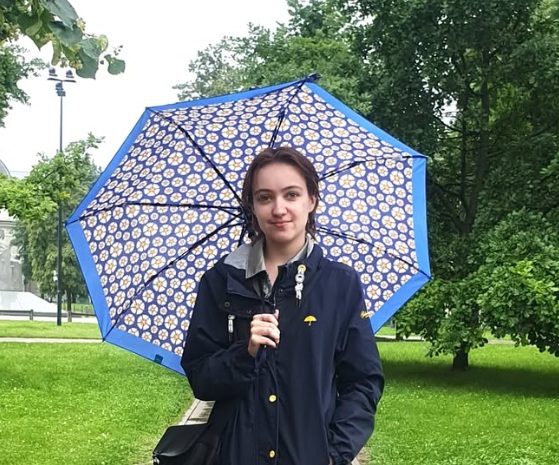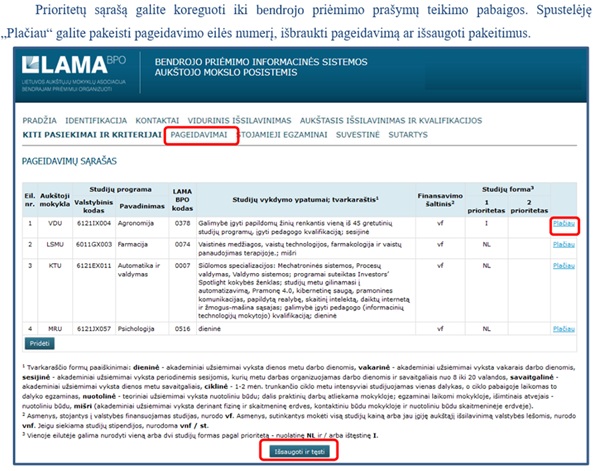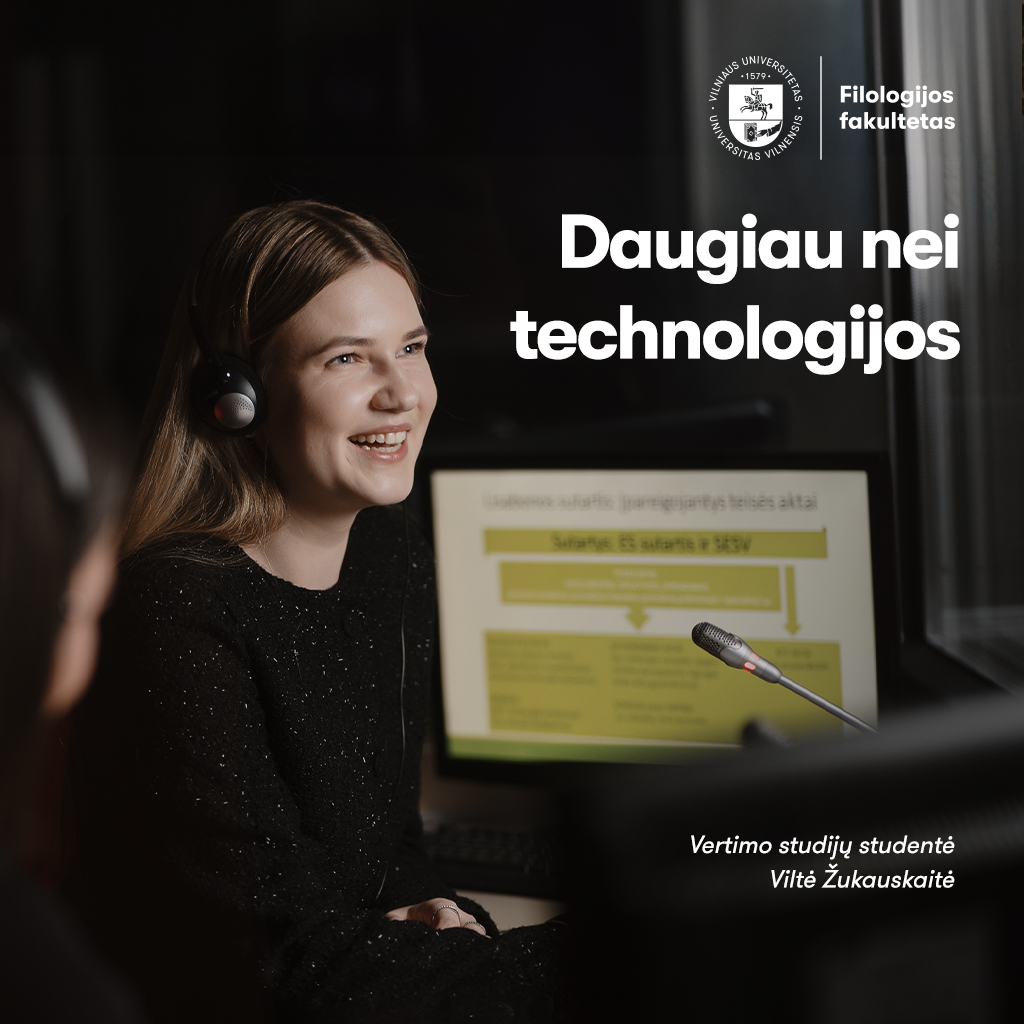Naujienos
2025
- Lucia celebration will take place in Vinco Krėvės room, at 18:00, on 12th December.
- Congratulations to our colleague Rūta Šileikytė-Zukienė, who has defended her PhD thesis The Influence of Neoplatonic thought in the Old English Boethius on 21st November! Find the thesis here.
-
Professor Henrik B Andersen will visit the Scandinavian Center to give a talk about the Danish painter Vilhelm Hammershøi and contemporary Danish art on November 26 at 13.00 in room 314AB. Please see the attached invitation.
-
You are all cordially invited to a seminar in English by a distinguished guest: profesor Catrin Norrby from Stockholm University. She is a sociolinguist and will talk about the complex relationship between nation, culture and language on the example of Swedish in Finland and Sweden.
The talk will take place Friday 31 October, 15:00, room 402. Please find the poster, including a short summary of the talk here.
-
10 och 11 november gästas Skandinavistikos centras av LARS RING (Stockholm) – teaterkritikern och kulturjournalisten på Svenska Dagbladet. Han kommer att föreläsa om två av de viktigaste figurerna i det svenska kulturlivet under det senaste halvseklet: poeten och dramatikern KRISTINA LUGN (1948-202o) och dramatikern LARS NORÉN (1944–2021).
KRISTINA LUGN lät plocka isär språket för att sätta ihop det igen. Hon fick det ljuda på andra sätt med andra valörer och lät det bli en förunderlig saga om kvinnor, ensamhet, skam och förort. Dikt som teater, poesi som komisk tragedi.
10 november, måndag, kl. 13.00, rum 314 AB (på svenska)
LARS NORÉN är antagligen Sveriges främste dramatiker – men också del av en mycket svensk psykologisk tradition – från August Strindberg, över Ingmar Bergman till idag. Han slog igenom 1984 med ”Natten är dagens mor”. Lars Ring har följt hans konstnärliga utveckling från starten och berättar om olika faser, formspråk och hans utveckling – språkligt och ämnesmässigt.
11 november, tisdag, kl. 13.00, rum 314 AB (på svenska)
LARS RING har studerat teatervetenskap vid Stockholms universitet och arbetat som dramaturg på Radioteatern. Han har arbetat som teaterkritiker och kulturjournalist på Svenska Dagbladet sedan 1984 och är ännu verksam. Har medverkat till en lång rad teaterantologier (senast – Genius loci, om platsens magi med Martha Westin, Sven Delblancsällskapets årsskrift, samt en text i hyllningsboken om Unga Dramaten 25 år.)
Besöket och föreläsningarna finansieras av Svenska institutet. - Atšaukta, atsiprašome už nepatogumus. Spalio 10 d. 17:00 val. kviečiame prisijungti prie virtualios paskaitos "Welfare, Motherhood, and Nationalism: The Swedish Example". Ją skaitys dr. Soheyla Yazdanpanah iš Södertörno universiteto.
Daugiau informacijos: čia. - We are pleased to announce that we shall meet our first guest speaker Yulia Gradskova (see the details below) at 17.00 o'clock this Thursday (25th). She will be joining us online (and you may join remotely). More information - here.
The title of the Yulia's lecture is: "Using media resources for analysis of women’s representations: RF’s “traditional values” and resistances to them" - Henrik Ibsen Seminar Oct. 3 – it will be a half day event, with a guest from Uni of Washington Prof. Olivia Noble Gunn and our own colleagues presenting and discussing Ibsen. More information here.
- We invite you to a special lecture "Education in Two Languages" by Prof. Kim Potowski, a renowned U.S. sociolinguist who works on bilingualism, heritage languages, and education for national minorities. It will take place on 2nd October, at 15:00, in Room 314. More information here.
- Lecture “Communist Lives in Cold War Iceland” with prof. Rósa Magnúsdóttir (University of Iceland) will take place on 30th September, at 17:00, in Room 314. More information here.
- Academia Nordica – edukacinė diena 10-12 klasių moksleiviams, vyksianti spalio 4 dieną, 13:00, Universiteto g. 5 (Filologijos fakultete), 92 auditorijoje.
- Išėjo naujas ,,Scandinavistica Vilnensis" serijos leidinys, rinkinys ISLANDŲ SAGOS. Jo sudarytoja ir vertėja iš senosios islandų kalbos – Rasa Ruseckienė – pirmoji VU Skandinavistikos centro islandų kalbos ir literatūros dėstytoja.
- BA defence is upon us on 4th and 5th June! Please find the programmes and the links for joining online here: Day 1 and Day 2.
- We invite you to the presentation The Icelandic Dream: The Gaze of Victorian Women Travellers by Auksė Beatričė Katarskytė. The talk will take place on Wednesday, 14th of May, at 3 30 PM in Room 314A. More information here.
- Balandžio 30 d., trečiadienį, 14.30 kviečiame visus susitikti Simono Daukanto kieme ir džiaugsmingai – dainomis ir laužo liepsnom – išvyti žiemos likučius ir įtvirtinti pavasario atėjimą pagal švediškas Valborgo (šv. Valpurgijos) šventės tradicijas.
- Student conference will take place on 4th April. Please find the programme here.
 Conference "Queer in Nordic Literature" will take place in Vilnius University, Room 92, on April 10th–11th, 2025. Please find the programme here.
Conference "Queer in Nordic Literature" will take place in Vilnius University, Room 92, on April 10th–11th, 2025. Please find the programme here.
- Kviečiame į Bengt Jangfeldt paskaitą The Nobel Family: Not Only Alfred But One of Europe’s Biggest Industrial Dynasties
📌 kovo 20 d. 11:00, VU Filologijos fakulteto Z.Zinkevičiaus (92) aud.
Kartą metuose visų šalių akys krypsta į Švediją, nekantriai laukiant žinios, kam gi šiais metais bus skirta Nobelio premija – vienas garbingiausių apdovanojimų pasaulyje. Dauguma žino, kad Alfredas Nobelis buvo iškilus mokslininkas ir dinamito išradėjas, bet nedaug kas girdėjo, kad jis priklausė genialių žmonių šeimai, su unikalia, intriguojančia istorija.
Bengt Jangfeldt knyga Immanuel Nobel & Söner: Svenska snillen i tsarernas Ryssland (2020; Immanuelis Nobelis ir sūnūs: švedų genijai carinėje Rusijoje) yra akademinis, patraukliai parašytas darbas apie Nobelių šeimą, jos reikšmingus darbus, išradingumą ir neįtikėtiną verslumą. Vertimas į anglų kalbą The Nobel Family: Swedish Geniuses in Tsarist Russia (2023) pateko į The Financial Times geriausių metų knygų sąrašą. Knyga taip pat išversta į rusų, azerų bei suomių kalbas.
Knygos autorius Bengt Jangfeldt – žinomas Švedijos slavistas, rašytojas ir vertėjas, knygų apieB. Pasternaką, V. Majakovskį, O. Mandelštamą, J. Brodskį, A. Munthe, R. Wallenbergą ir daugelį kitų autorius, prestižinių literatūros premijų (dukart Augusto Strindbergo premijos – auksčiausio Švedijoje literatūrinio apdovanojimo, Švedijos akademijos premijos ir kt.) laureatas. Bengt Jangfeldt daug rašo ir Rusijos politikos ir istorijos klausimais: jo knyga Vi och dem. Bengt Jangfeldt om Ryssland som idé (2017; Mes ir jie. Bengt Jangfeldt apie Rusiją kaip idėją), prasidėjus 2022 m. karui, buvo išleista pakartotinai ir išversta į daugelį kalbų.
2024 m. rudenį Bengt Jangfeldt viešėjo Vilniaus universitete ir sužavėjo auditoriją paskaitomis apie Raoul Wallenbergą ir Josifą Brodskį. Nuoširdžiai džiaugiamės jo grįžimu ir galimybe pristatyti šį puikų autorių platesnei auditorijai, šį kartą per jo pasakojimą apie iškiliąją Nobelių šeimą. - Director of the University of Latvia Livonian Institute dr. Valts Ernštreits is a Livonian-born linguist and language activist. He specializes in revitalization, development and digital empowerment of Latvia’s indigenous Livonian language. His research and community work has been widely acknowledged in Latvia and abroad. As a Livonian himself and one of the few speakers of the Livonian language, he has been involved with many activities – both physical and digital – focused on safeguarding and empowering Livonian language and heritage for over 30 years, also serving as a mediator between NGOs, governmental institutions, and academia. He is also a member of the Global Task Force for Making a Decade of Indigenous Languages (2022–2023). Dr. Valts Ernštreits will have 4 seminars on Livonian language and culture:
🔹Monday, 17 March 15:00, 314 AB (in English; also online)
Livonians – indigenous people of Latvia (introduction)
🔹Tuesday, 18 March 13:00, 314 AB (in English, also online)
Insight into Livonian language and it’s contacts
🔹Wednesday, 19 March 15:00, (in English, only online)
Livonians: tangible and intangible heritage
🔹Thursday, 20 March 15:00, (in English, only online)
Building Livonian future
Please use this link to join the meetings. - Academia Nordica – edukacinė diena 10-12 klasių moksleiviams Skandinavistikos centre, Vilniaus universitete.
Skaitote skandinaviškus detektyvus? Žiūrite serialus? Suomiško metalo klausotės? Girdėjote, kad Norvegija labai graži? Puiku, bet net jei ir ne – mūsų akademijoje išgirsite įdomybių apie Šiaurės šalių kalbas ir kultūras ir sužinosite, kaip visa tai galima studijuoti Vilniaus universitete.
Renginys vyks kovo 15 dieną, 11:00, Universiteto g. 5, Vilniuje, 92 auditorijoje. - Monday 3 March our Swedish ambassador Lars Wahlund will visit Vilnius university. He will talk about the Swedish student organisations at universities called ”nationer”. The talk will be in Swedish and take place at 11 am in 314. Everyone who understands Swedish is welcome!
- The Centre for Scandinavian Studies very pleased to invite you to a series of lectures by a visiting guest, Dr Yair Sapir, a senior lecturer in Swedish at the University of Kristianstad, Sweden. Focusing on the newly published grammar of Elfdalian, co-authored by Dr Sapir, his lectures will touch upon questions of the relationship between dialects and languages, endangered languages and language revitalization policies and practices. Please see the full schedule below:
🔹On Tuesday, February 25 at 15.00 in the auditorium 402 at our Centre, he will give a lecture in English “Elfdalian of Northern Dalarna, Sweden – an Introduction”, please do come and join!
🔹On Friday, February 28 at 11.00 in the auditorium 314A/B at our Centre, he will give a lecture in Swedish “En introduktion till älvdalska” --> alla svensktalande kollegor och studenter är hjärtligt välkomna!
🔹On Friday, February 28 at 13.00 in the auditorium 314A/B at our Centre, a second lecture in English will follow “Elfdalian and Sweden’s Sámi Languages, Sweden’s Minority Language Policy”, everyone is welcome!
“A Grammar of Elfdalian” published on 30 September 2024 can be downloaded here: https://uclpress.co.uk/book/a-grammar-of-elfdalian/
Yair is a linguist with many hats (as you can see here: https://researchportal.hkr.se/en/persons/yair-sapir ), and we are delighted to have an opportunity to welcome him in person and learn about the amazing Elfdalian spoken in Sweden, which is a true treasure find for any linguist.
Look forward to seeing you in person on February 25 and 28! - We are pleased to announce that acclaimed Norwegian author Zeshan Shakar will be visiting on the 17th of March. Shakar, known for his award-winning novels "Tante Ulrikkes vei", "Gul bok", and "De kaller meg ulven", has made a significant impact on contemporary Norwegian literature with his insightful and powerful portrayals of multicultural urban life.
📅 Date: 17th March
📍 Location: Room 314 AB
🕒 Time: 13.00
The event is open to all, and we encourage students, faculty, and literature enthusiasts to join us for an engaging and thought-provoking conversation.
We look forward to welcoming Zeshan Shakar and hope to see you there!
2024
- 🎄🎄🎄Lucia celebration will take place on 13 December, at Vinco Krėvės auditorium, at 18:00.
- Lapkričio 29 dieną Rašytojų menėje atidaryta Rasos Baranauskienės fotografijų paroda.
- Lapkričio 15 dieną, 10:30 mūsų centre lankysis biochemijos profesorius ir Nobelio premijos komiteto narys Johanas Åqvistas. Susisitikimas vyks 314 A auditorijoje, švedų kalba.
-
Torben Jelsbak (Copenhagen University) will be visiting us on the 20th of November. He will give two lectures:
15:00 The Cultural Poetics of the Small State. From Scandinavian Modernity to the Idea of Pan-Europe. Room 314 and Teams.
17:00 Putin’s War Against Women. Postcolonial Memory Politics in Sofi Oksanen. Room 314 and Teams.
- On November 13 at 17.00, in Room 314, Dalia Satkauskytė will talk about sociocriticism: "Ką gali ir ko negali sociokritika".
- Workshop by Guy Geffen (Copenhagen University) "AI tools in the Humanities: How can they help (or not)" will take place on November 13, at 17:00, in the auditorium 92 (Zigmo Zinkevičiaus) (Organizer Ringailė Trakymaitė)
-
Lapkričio 7-8 dienomis Skandinavistikos centre viešės Ugnius Vizgirda Mikučionis – filologas, senosios skandinavų literatūros tyrinėtojas ir vertėjas, lietuvių skaitytojams pristatęs sen. islandų Kniutlingų sagą (Knýtlinga saga – tai XIII a. danų karalių kronika, kurioje daugiau nei kitur pateikiama žinių apie baltų kraštus ir skandinavams grėsmę kėlusius kuršius), daugelio straipsnių ir pranešimų autorius, šalia kitų klausimų šiuo metu tyrinėjantis dar ir pasakojimus apie dvergus skandinavų mitologijoje.
Ugnius mums skaitys dvi paskaitas, todėl jau dabar pasižymėkite ir planuokite:
Skaldų poezijos vertimai šiuolaikinėse kalbose
Data ir laikas: lapkričio 7 d. (ketvirtadienis) 11 val.
Vieta: 92 aud.
Daugiakalbystė senovės islandų sagose (anglų k.)
Data ir laikas: lapkričio 8 d. (penktadienis) 15 val.
Vieta: K. Donelaičio aud.Visų labai lauksime! ☀️
- Marika Lagercrantz besöker oss 5 november, 13:00, Rum 314. Den kända svenska skådespelerskan Marika Lagercrants kommer på besök tisdag 5 november för att tala med studenterna om svenska språket i film.
- PhD Vesa Jarva from University of Jyväskylä is visiting us this week. He will give a lecture about Finnish spoken and colloquial language in English on 21st October, at 13:00, in Room 118. He will also have further lessons with the students of Finnish language throughout the week.
- Kviečiame į pokalbius su Bengtu Jangfeldtu antradienį, spalio 22 d.:
🕰️11.30, 314 AB aud. švedų k. apie Raoul Wallenbergą, Švedijos diplomatą, išgelbėjusį tūkstančius Vengrijos žydų gyvybių, ir žuvusį vėliau Rusijos Gulage.
🕰️13.00, 314 AB aud. rusų k. apie Josifą Brodskį – prisiminimai, poetika, vertimo problemos. - Måndag, den 7 oktober, kl. 13.30 – 14.45, i Sal 314 AB: Olof Ehrenkrona kommer att tala om Det nya Norden – hur det gick till och vad som hände.
Alla är hjärtligt välkomna! - On Tuesday, October 1 at 17.00 Vilnius-time, a dear friend and colleague, currently working at Potsdam University, Dr. Kirill Kozhanov will give a lecture on the topic "Cross-border Nations and Cultures in the Nordic and Baltic Sea Region: The Case of Romani". Link to Teams.
- The Karelian seminar will take place on 23rd of October, at 15:00, in Room 314. More information here.
- Šį penktadienį, rugsėjo 27 d., 15.00 val., Skandinavistikos centre viešės KARIANNE SKOVHOLT, mūsų buvusi lektorė, dabar – Pietryčių Norvegijos universiteto norvegų kalbos didaktikos profesorė. Ji pristatys savo mokslinio projekto CAiTE (Conversation Analytic innovation for Teacher Education) rezultatus. Seminaras vyks 314B aud. (norvegų kalba).
- Rugsėjo 30 d., 11.00 val., Skandinavistikos centro 314AB aud. kviečiame susitikti su norvegų rašytoju Vidar Sundstøl. Svečias papasakos apie savo kūrybą, pristatys naujausią romaną, „Nattsang“ (2023), ir atsakys į skaitytojų klausimus (norvegų kalba). (Jei norėtumėte iš anksto susipažinti su kūriniu, kreipkitės į norvegų k. dėstytojus.)
Rašytoją išgarsino „Minesotos trilogija“, už kurios pirmąją dalį 2009 m. jis apdovanotas Rivertono premija. Pagal šią detektyvinę istoriją JAV ketinama kurti televizijos serialą. Autoriaus kūriniai išversti į anglų, vokiečių, prancūzų, italų, nyderlandų, danų, islandų, lenkų ir estų kalbas. - Rugsėjo 23 d. 11.00 val., Filologijos fakulteto 92 (Zinkevičiaus) aud. Eva Mattsson skaitys paskaitą apie Kotryną Jogailaitę (Kotryna Jogailaitė - Cultural Transmission through Royal Alliances) anglų kalba.
Paskaita galėtų sudominti ne tik Filologijos, bet ir Istorijos fakulteto studentus bei dėstytojus bei platesnę visuomenę. - Rugsėjo 17 d., 11:00, V. Krėvės auditorijoje vyks susitikimas su "Atlantbib" projekte dalyvaujančių mokyklų mokytojais, mokančiais skandinavų kalbų.
- The PhD student seminar on the literature of the Anthropocene will take place on Friday, the 13th, at 3PM, Room 314b, and will feature two presentations:
- Mikael Schultz Rasmussen "The Entangled Dead: A Post-Anthropological Approach to Death and the Dead in Karl Ove Knausgård's ‘Morgenstjernen’ and ‘Ulvene fra evighetens skog’”;
- Radvilė Musteikytė "From Personal to Environmental and Back Again: The Rhetoric of Solastalgia in Richard Powers’ ‘Bewilderment’ and Escammi Itäranta’s ‘The Moonday Letters’."
More details on Facebook. - Dr. Adel Furu's seminar on linguistic rights of minorities will take place on Wednesday (11th of September) at 11:00 in 314A. Everybody is cordially welcome. This is what she is going to talk about:
Presentation of the linguistic rights of minorities speaking lesser-used languages, especially the Sámi people of Finland and the Kurds of Turkey. Investigation of the relationship between language policy and education policy in the case of these ethnic and linguistic minorities. Examination of the possibilities of minority language use depending on the social system: what social, cultural, political and sociological conditions the practice of applying minority language rights depends on in the areas indicated above. - Nauja MA programa – Šiaurės ir Baltijos jūros regiono kalbos ir kultūros! Kviečiame studijuoti!
- 🇳🇴 Kviečiame švęsti Gegužės 17-ąją! 10:30, Daukanto kieme.
- 🇫🇮 A high-level delegation from the Finnish Parliament, led by its Speaker, Dr. Jussi Halla-aho and consisting of members from three major political parties, visited the Centre for Scandinavian Studies on Monday. The delegation was welcomed by our staff and students, after which a lively discussion and sharing of experiences followed. All in Finnish, of course! The delegation emphasized the importance of versatile language skills as well as the long cultural and linguistic bonds between Lithuania and Finland. Thank you for taking the time to visit us! Photos here!
- Kviečiame pasitikti pavasarį su Šv. Valpurgijos švente! Balandžio 30 d. 14.30 laukiame visų Simono Daukanto kiemelyje.
Dainuosim švediškas pavasario dainas, švęsdami pavasarį ir jaunystę. - Balandžio 26 d., penktadienį, Skandinavistikos centras kviečia į kasmetinę BA programos studentų mokslinę konferenciją. Konferencija prasidės 9:30 ir vyks 92 auditorijoje.
-
Pirmadienį, balandžio 22 d. 13:00 val. (314A aud.) kviečiame į svečio iš Europos Parlamento Algirdo Venckaus seminarą apie Europos Sąjungos institucijas, jų sandarą, ES susikūrimo istoriją, o svarbiausia - vertimus ir vertėjų darbą. Kviečiame dalyvauti, aktyviai užduoti klausimus, domėtis ES siūlomomis stažuočių galimybėmis.
Algirdas Venckus yra VU alumnas, baigęs prancūzų kalbos BA studijas ir vertimo MA studijas.
- Conference Mytologi og Folklore i Skandinavisk Litteratur will take place in our centre on 25 April. Please find the programme here.
- The Danish Ambassador Mme Grete Sillasen will be visiting the Faculty of Philology and the Centre for Scandinavian Studies on Friday, April 19th. The event will take place in Aula Parva (Universiteto g. 3) from 10:45 til 12:00.
- Kviečiame regsitruotis į gretutines skandinavistikos studijas! Registracijų laukiame iki balandžio 30 dienos. Motyvacinis pokalbis preliminariai planuojamas gegužės 3 dieną.
- Finnish art historian, MA Leena Ahtola-Moorhouse is giving an open lecture on the fascinating painter Helene Schjerfbeck on Friday, March 8th at 15:00 in the Scandinavian Centre (314AB). You are most welcome to join the event! You can read more about it here.
- Författare Kristina Ohlsson, känd för sina spänningsromaner för barn och kriminalromaner för vuxna, med statsvetares bakgrund och spännande yrkeserfarenheter som politisk- och säkerhetsanalytiker i Sverige och EU, författare på heltid sedan 2012 och gäst på årets Vilnius bokmässa kommer på besök till vårt center Fredag 23 februari, kl. 11.00 (rum 314 AB).
Kom och träffa författaren med en svindlande yrkesbana. Ställ frågor om hur man hittar sin väg i yrkeslivet, förverkligar sina drömmar samt om det aktuella i Sveriges och världens nutid. På svenska (men! med möjlighet att ställa frågor på skandinaviska, engelska & även litauiska.) - On 20-21 February, dr. Svetla Tzviatkova Kovatcheva will hold three lectures in Norwegian:
- 20th February, 9.00: "Jeg trives best med to og et halvt: om hunkjønn i norsk (bokmål)" (Room 402)
- 20th February, 13.00: "Om særskriving, sammenskriving, subjesregelen, engelsk påvirkning og andre språklige utfordringer i norsk" (Room 402)
- 21st February, 11.00: "Det norske oljeeventyret" (SP1, UKI) - In Memoriam prof. Per Thomas Andersen
- Dr. Johanna Laakso, professor of Finno-Ugric studies at the University of Vienna will be visiting our Centre on 27 February-1 March. She will deliver 3 lectures in English:
- 27 February, 13:00 (Tuesday): on the history of Finnougristics (in English, room 122).
- 28 February, 13:00 (Wednesday): on Finnish and Swedish language contacts (in English, room 122).
- 1 March, 13:00 (Friday): a public lecture "Demistifying the Finno-Ugric languages" (in English, room 314A-B). More information about this lecture can be found here. -
Professor Björn Meidal, the prominent researcher of August Strindberg life and work will be visiting Center of Scandinavian studies on 12-13th February. The visit is organized with the support of the Swedish Ambassy in Vilnius. Prof. Björn Meidal will deliver two lectures:
12 February, Monday 11.00. August Strindberg och Carl Larsson: Hjärtevänner och dödsfiender. On the relationship between two key figures in Swedish culture of the late 19th and early 20th century (room 314 AB, in Swedish).
13 February, Tuesday 11.00. Strindberg and 20th Century Avant-garde Drama and Theatre. The focus is on August Strindberg´s importance in and for 20th Century drama and theatre (playwrights and directors), with some bearings also on prose, poetry and film (room 92, in English).
More about prof. Meidal: here and here. More about the lectures: here.
2023
- On December 5-7 prof. Mathew J. Driscol will hold several lectures on old Icelandic literature in our centre. You can find the abstracts of the lectures and their precise times and locations here.
- Our wonderful alumnus Adelė Šalkauskaitė will give a talk on Perfomativity Studies in the Context of Philology. The event will take place on November 29, at 17:00, in Room 314. You can find more information in this poster.
- On December 8, at 15:00, in Room 314 prof. Helena Wahlström Henriksson (Uppsala University) will give a talk Single Fathers Fail: Swedish cinema and (non)stigmatization of single parents (the visit is part of Mothernet project). You can find the abstract here.
- On December 7th, at 15:00 in Vinco Krėvės room prof. Matthew J. Driscoll (Copenhagen University) will give a talk "Every book in every language on every subject": Hernando Colón’s universal library and the Libro de los epitomes. You can find the abstract here.
- 🇫🇮 We will be celebrating Finnish Independence Day on December 5th, at 14:00 in Room 314. 🇫🇮
- On December 5th, at 13:00, in Room 314 dr. Maria Ahlholm (Helsinki University) will give a talk Translanguaging in the school: implications for conception of language and language pedagogy.
- On November 24th, at 15:00, in Room 402 dr. Giedrius Tamaševičius will give a talk on the Danish film classic Olsen-banden. Please find the abstract here.
- Come and meet the Danish TV journalist and author Ole Retsbo who will tell about his past and current projects. The talk will take place on 9th of November, at 11 o'clock, in Room 314. The event will be held in Danish.
- On Thursday the 9th of November, at 9 o'clock, the successful Swedish author Jens Lapidus will be visiting us at Vilnius University. He will talk about his novel Paradis city (2021), which is being developed into a TV series and is now being filmed in Vilnius! More information about the event (in Swedish) is here (PDF file).
- We will have two guests next week! Litterary critic and culture journalist Ingrid Ellam will give a talk at our centre on 18th September, at 11:00, in room 314. More information about the event can be found here. And on 19th September, at 13:00, also in room 314 the economist and book author Kenneth Hermele will talk about the Jewish resistance during the Holocaust. You can find more information here.
- Our bachelor's students will be defending their theses on 13-14th June 🎓 You can find the programme here.
- Our master's students will be defending their theses on 8th June. Please find the programme here.
-
On May 31 – June 1, Centre for Scandinavian Studies will be hosting international research network New Geographies of Scandinavian Studies. In this connection, two open lectures will be held in English:
Wednesday, May 31, 11 30-13 00, Room 314. Prof. Violeta Davoliūtė (TSPMI). The Transnational and Transgenerational Migration of Memory.
Thursday, June 1, 13-14, Room 314. Dr. Satu Grünthal (Skandinavistikos centras). Vyborg – a lost border city of histories, memories and meanings
You are welcome to join!
- Författaren Sara Mannheimer På besök hos oss på Centrum för nordiska studier, 18 Maj torsdag kl. 11.00, rum 314.
- Welcome to a discussion with Emil Slott about his project “Humor and Hate: How extremist groups use online humor as a manipulation tool for radicalization?”. Friday, 5th of May, 3 p.m. Room 402.
- From the Classroom to the Crypt: our students' tour in the dungeons of Vilnius Cathedral. Our dear professor Rūta boldly lead her students of Old English to the historic depths beneath the city.
- Come celebrate Walpurgis Night with us on 28th April, 15:10, in Daukantas yard (the one with the oak and entrance to Domus Filologae)! We will sing Swedish songs and celebrate spring 🌼
- Our students' conference will take place on 28th April, at 9:00, in V. Krėvės auditorium (literature section) and Room 314 (linguistics section). Please find the programme here.
- Skandinavistikos centre savo eiles skaitys norvegų poetas Erling Kittelsen.
The Norwegian poet Eling Kittelsen will read his works at our centre on 21st April. - Dr. Sirkku Latomaa's lecture The Past And Present of Linguistic Diversity in Finland was very interesting and fun. Dr. Latomaa has kindly agreed to share her slides, you can find them here.
- Welcome to the lecture The Past And Present of Linguistic Diversity in Finland, by dr. Sirkku Latomaa, University of Tampere. It will take place at Room 314 on 28th February.
- Mieli pirmakursiai! Kviečiame registruotis į gretutines Skandinavistikos studijas nuo kovo 1 dienos! Prieš apsispręsdami galite ateiti į atvirų durų dieną Skandinavistikos centro 4-ame aukšte, balandžio 24 d., 15:00.
Registruotis galima iki gegužės 14 dienos, motyvaciniai pokalbiai planuojami gegužės 16 dieną. - Welcome to the seminar on neurolinguistics, held at our centre by The Lund Neurolinguistics group on March 31st. Please find the program and the abstracts here (the program last updated on March 24th).
2022
- Welcome to the lectures and seminars on Motherhood and Gender with prof. Jenny Björklund (Uppsala University), from 29 November to 2 December, organised by MotherNet
- Everyone is welcome to join us on November 18th for the celebration of the 30 (1) years anniversary for Scandinavian Studies at Vilnius University – on campus and online.
Progamme in English
***
Lapkričio 18 d. kviečiame kartu su mumis švęsti Skandinavistikos studijų 30(1) metų jubiliejų – gyvai ir nuotoliniu būdu.
Programa lietuvių kalba
- Forelesning med Henning Howlid Wærp, 9. og 10. November, rom 314AB
- Lapkričio 4 d. 15.00 val. 314 A-B aud. Audun Aschim Steffensen skaitys viešą paskaitą: "Nordisk mytologisk påvirkning i Norsk musikk,
fra klassisk musikk og Black Metal til Aurora" (norvegų kalba) - Rodomas filma "Sameblod" (Sami blood) spalio 26 d. 314AB su angliškais subtitrais. Visi maloniai kviečiami!
- Welcome to the conference NORDIC COLONIALISM IN THE ARCTIC AND THE INDIGENOUS PEOPLES’ RESISTANCE organised by the Nordic lecturers at the Centre for Scandinavian Studies on 17 and 18 October. The conference will take place live and on zoom. Please check the program and the annotations of the events
- Sveikiname dr. Astą Laugalienę, užtikrintai apgynusią disertaciją „Partitivity in Finnish and Lithuanian: object marking“ (mokslinis vadovas prof. Axel Holvoet)
- Hjärtligt välkomna att träffa Svante Weyler - förläggare, journalist, Sveriges kulturpersonlighet. Föreläsningar ska äga rum på torsdag den 8 september kl. 11 och 13 i sal 314 AB.
- Skandinavisikos centro BA studentų gynimai vyks birželio 14 ir 15 d. 314 aud. Gynimų tvarkaraštis // Försvarens schema BA
- ŠEKK magistro studijų gynimai vyks birželio 13 d. 10.00-15.00 // Masters’ defence, study program Languages and Cultures of Northern Europe will take place on 13 June from 10.00 to 15.00
- Kviečiame susipažinti su Šiaurės Europos kalbų ir kultūrų magistro programa!
- Skandinavistikos studentų konferencija: alumno žvilgsnis
- Kviečiame į Norvegijos konstitucijos dienos šventę gegužės 17 d. 11.00 Krėvės aud. // Velkommen til 17. mai feiring
- Balandžio 29 d. (penktadienį) vyks kasmetinė Skandinavistikos centro studentų bakalaurantų ir magistrantų mokslinė konferencija, kurioje bus pristatyti rašomi baigiamieji BA ir MA darbai. Konferencija vyks skandinavų kalbomis 92 ir 314 auditorijose nuo 9.00 iki 15.00. Organizuojamos trys sekcijos: lingvistikos, literatūros ir kultūros. Bus skaitomi pranešimai ir pristatomi posteriai. Maloniai kviečiame dalyvauti.
- Švedų rašytoja Elisabeth Åsbrink gegužės 3 d. 13.00 Skandinavistikos centre. Paskaita (švedų kalba su sinchroniniu vertimu į lietuvių kalbą) vyks Filologijos fakulteto 92 auditorijoje. // Elisabeth Åsbrink, svensk författare och journalist, kommer att föreläsa på Skandinavistikos centras den 3 maj, tisdag, kl. 13.00 (rum 92), på svenska
- Dr. Juha Raipola (Tampere University) will conduct the webinar on 29 March, 11 AM: “The Weird Poetics of Leena Krohn” for the students following the course “Scandinavian literature since the Modern Breakthrough”.Please contact ieva.steponaviciute(at)flf.vu.lt, if you wish to join the webinar on MS Teams.
2021
- Kviečiame registruotis į gretutines Skandinavistikos studijas
- Tomorrow, 29 December 2021 Ringailė Trakymaitė will be defending her PhD dissertation at 15.00 in Krėvės auditorium. See more information here
- Lectures and seminars on Scandinavian literature by dr. GITTE MOSE (Oslo University) November 24-26
- Švedijos instituto stipendijos / Stipendium för korttidsvistelse i Sverige (dokumentų pridavimo terminas: lapkričio 1 d.)
- Mūsų centro dėstytojos dr. Rasos Baranauskienės pranešimas apie drakonus skandinavų edose, skaitytas festivalio "Lituanicon" metu
- Kviečiame į "Seminarą pas skandinavus" rugsėjo 17 d. 15.00, 314B auditorijoje. Šio seminaro tema "Echoic use and the problem of historical imperatives", pranešėjas Axel Holvoet
- Skandinavistikos centro asistentė dr. Rasa Baranauskienė apie Tolkiną ir skandinavų mitologiją.
- Švedijos ambasada kviečia į 'Pirmadienio susitikimą' rugsėjo 9 d. 13.00 Lietuvos respublikos Seime, atšvęsti ir atsiminti Švedijos piliečių paramą Lietuvos nepriklausomybei. Registracija į renginį vyks iki rugsėjo 7 d.
- Vilniaus universitetas subūrė skandinavistus iš viso pasaulio
- Vilniaus skandinavistai kviečia į skandinavų menininkų diskusiją atminties tema
- Tarptautinė skandinavistikos konferencija Vilniaus universitete
- BKKI magistro programos "Šiaurės Europos kalbos ir kultūros" magistro darbų gyinimai vyks birželio 9 d. 14.00 (gynimų programa).
- Skandinavistikos centro BA darbų gynimai vyks birželio 10-11 dienomis Teams platformoje (gynimų programa). Prisijungimo nuorodą rasite programoje.
- Online lecture by and discussion with the Swedish poet, playwright, translator and literary critic Athena Farrokhzad (May 11, 11.00 Vilnius time, meeting link).
Athena Farrokhzad has risen to fame with her debut White Blight (Vitsvit). You can listen to her poetry reading here: http://podpoesi.nu/poeter/athena-farrokhzad/ - Studentkonferens 29-30 april 2021 // Program
- Prof. A. Libermano paskaita apie skandinavų priegaidžių kilmę balandžio 13 d. / Prof. Anatoly Liberman's lecture on Scandinavian accentology 13 April
- Hva er posthumanisme? What is Posthumanism? Et nettseminar støttet av SNU, 12-13. april 2021.
- Norvegijos aukštojo mokslo agentūra DIKU skelbia mobilumo stipendijas magistro ir doktorantūros studentams. Paraiškos priimamos iki 2021 m. kovo 25 d. Daugiau informacijos: https://www.studyinnorway.no/mobility-grant
2020
- Skandinavistikos centro bakalauro darbų gynimai vyks birželio 18-19 d. platformoje Microsoft Temas. Programa lietuvių kalba (su prisijungimo linkais). // Försvaren av kandidatuppsatser 2020.06.18-19. Program på svenska (med MS Teams-kopplingar).
- Skandinavistikos centro 4. kurso studentų konferencija 2020-05-14/15 / Kandidatkonferens 14-15 maj 2020.
Konferencijos programa (su nuorodomis į MicrosoftTeams grupes) / Konferensprogram - Mieli pirmakursiai, dėl karantino nukeliama gretutinių studijų priėmimo motyvacinių pokalbių data. Jie vyks balandžio 30 dieną per Microsoft Teams. Apie jūsų individualaus pokalbio laiką informuosime el. paštu pasibaigus registracijai, nuo balandžio 22 dienos
- Registracija į skandinavistikos gretutines studijas vyksta iki balandžio 22 d. Daugiau informacijos čia.
- Lecture by dr. Susanna Virtanen from Helsinki university. Uralic studies: current state of research and education, Friday, 6 March, at 13:00 (115A)
- Kviečiame iki 2020 m. kovo 8 d. teikti paraiškas įmonės „COGNIZANT TECHNOLOGY SOLUTIONS LITHUANIA“ VARDINEI STIPENDIJAI gauti. Atsisiųskite kvietimą ir motyvacinio laiško formą
2019
- Welcome to the seminar by professor Daniel Sävborg from Tartu University: "Formler in den isländska sagan" Tuesday , 13.00 , room 402. The seminar will be in Swedish.
- Skandinavistikos centras kviečia visus į LIUCIJOS šventę, trečiadienį, gruodžio 18 d. 18.00 V. Krėvės (118) aud.
- In memoriam Paal Arbo
- Švietimo mainų paramos fondas skelbia paraiškų konkursą stipendijai islandų kalbos studijoms Islandijos universitete. Paraiškų teikimo terminas - iki gruodžio 1 d.
- Susitikimas su rašytoja iš Švedijos Anne-Marie Körling spalio 9 d., 17:30
- Kviečiame į SK centro bakalauro darbų gynimus, 2019 birželio 13-14 dienomis. Gynimu tvarkaraštį rasite čia.
***
- Skalbiama naują magistrantūros programą Šiaurės Europos kalbos ir kultūros! Daugiau informacijos čia.
***
- VU garbės daktaras prof. Jurij K. Kuzmenko (Berlyno Humboldtų universitetas) skaitys seminarą penktadienį, gegužės 17 d., 15.00., 314 B aud.: „Сокращение долгих корневых ударных гласных в датском и английском языках“. Nuotraukos iš renginio.
- Balandžio 25 d., 15 val. V. Krėvės aud. doc. dr. Loreta Vaicekauskienė skaitys paskaitą „Socialiniai lietuvių kalbos aspektai ir kontekstai. Kritinė perspektyva“. Paskaitos skaidrės galite pažiūrėti čia.
- Kviečiame pasitikti pavasarį su Šv. Valpurgijos švente!
- Kviečiame į Skandinavistikos centro bakalaurantų mokslinę konferenciją!
Velkommen til studentkonferansen!
Donelaitis auditorium, kl 9.30, 26. april, 2019. Program (på svensk). - Torben Jelsbak’s lectures on the roots of “Scandinavian Design”, Friday, 10 May, 13.00 at the Centre of Scandinavian Studies, Room 314 A/B
- BKKI kviečia į profesoriaus Johano van der Auweros paskaitas balandžio 2-4 d. Paskaity plakatas čia.
- Davido Östlundo paskaitų ciklas apie Švedijos fenomeną, kovo 25-27 d.
- Helsinkio universiteto lektorės Emmi Pollari seminaras (anglų kalba) penktadienį, kovo 22 d., 15 val. 314AB auditorijoje
- Helsinkio universiteto doktoranto Jaakko Raunamaa seminaras, penktadienį, kovo 8 d., 15.00 val. 314 AB aud.
- Registracija į skandinavistikos gretutines studijas vyksta iki kovo 15 d. Daugiau informacijos čia.
- Kviečiame į dr. Atėnės Mendelytės paskaitą „Skruzdėlių pilna gyvatės oda”: Ingmaro Bergmano gyvenimas, kūryba, estetika bei filosofija
- "5th Northern European Annual Conference Trust, Cooperation and Resilience in the Nordic-Baltic Region" January 18, 2019, Office of Nordic Council of Ministers, Didžioji g. 5 (4th floor)



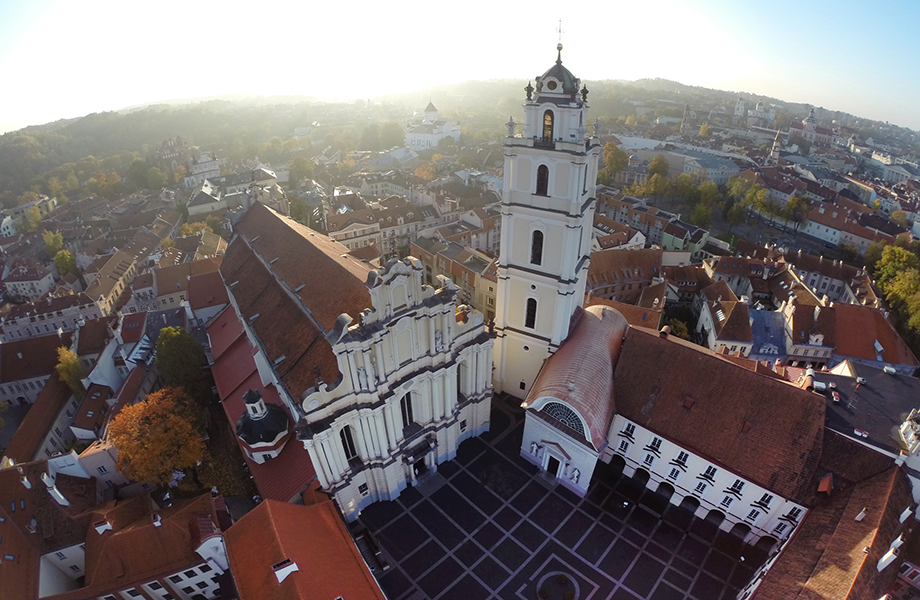
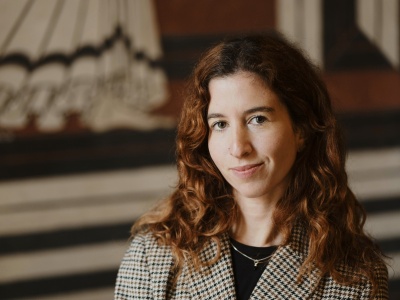

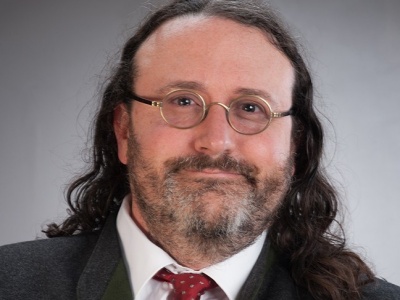
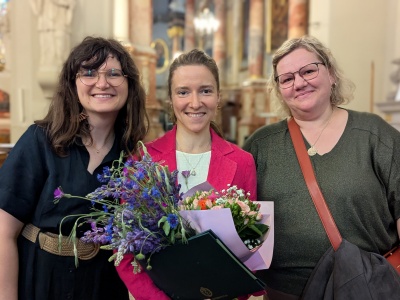
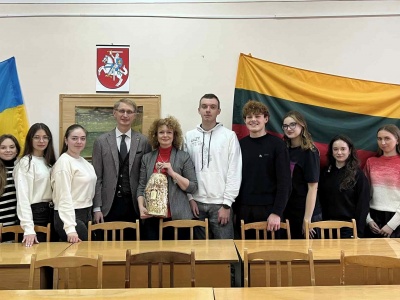

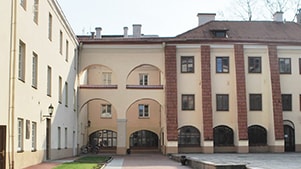
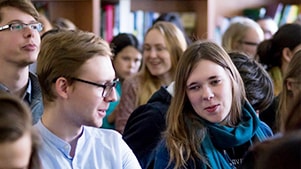
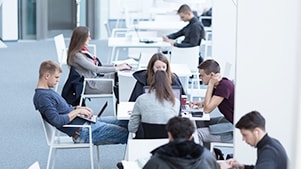
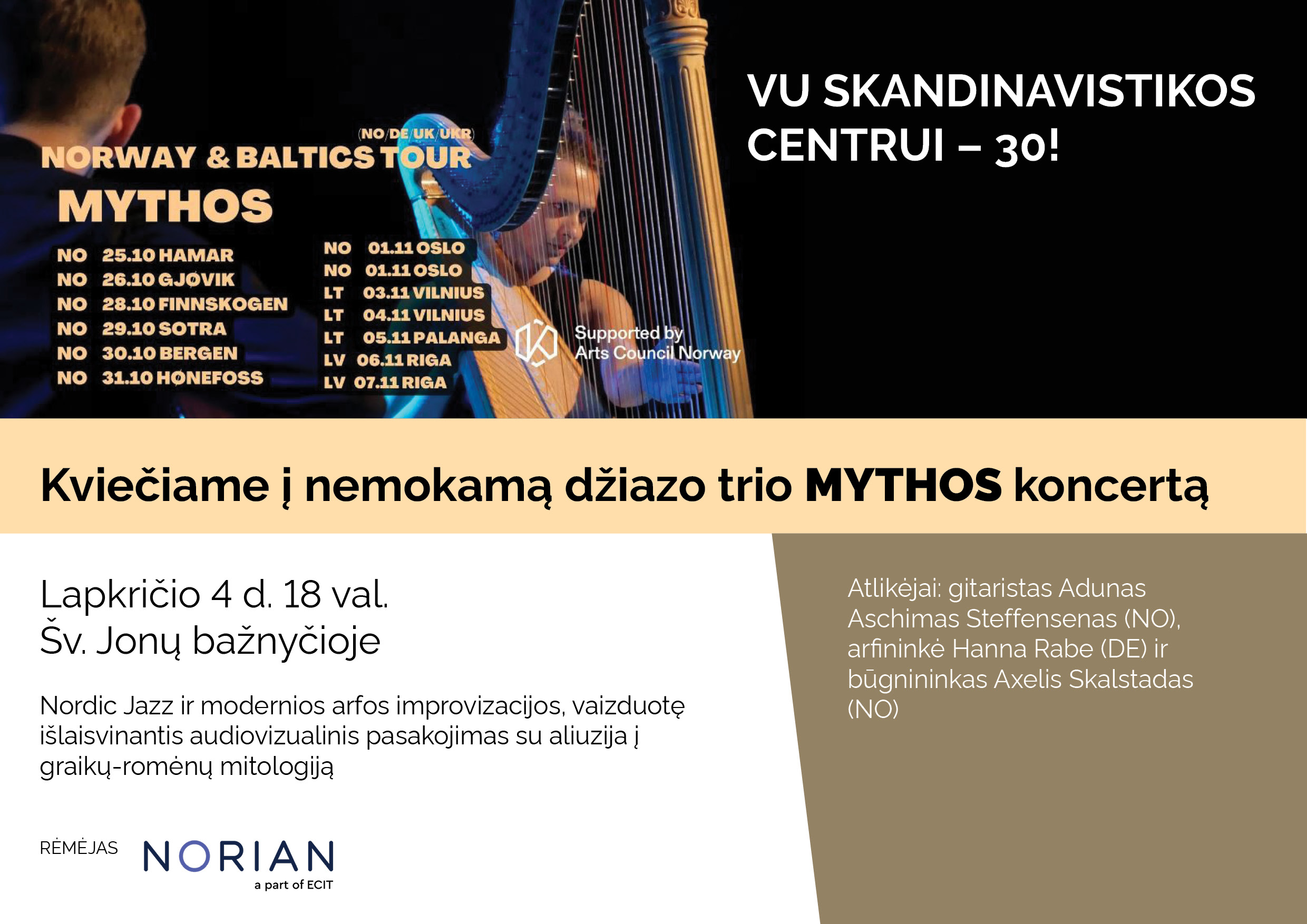
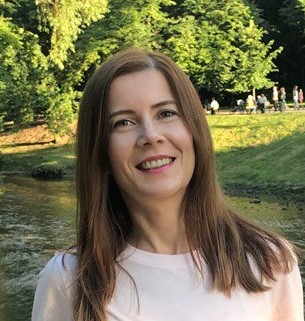
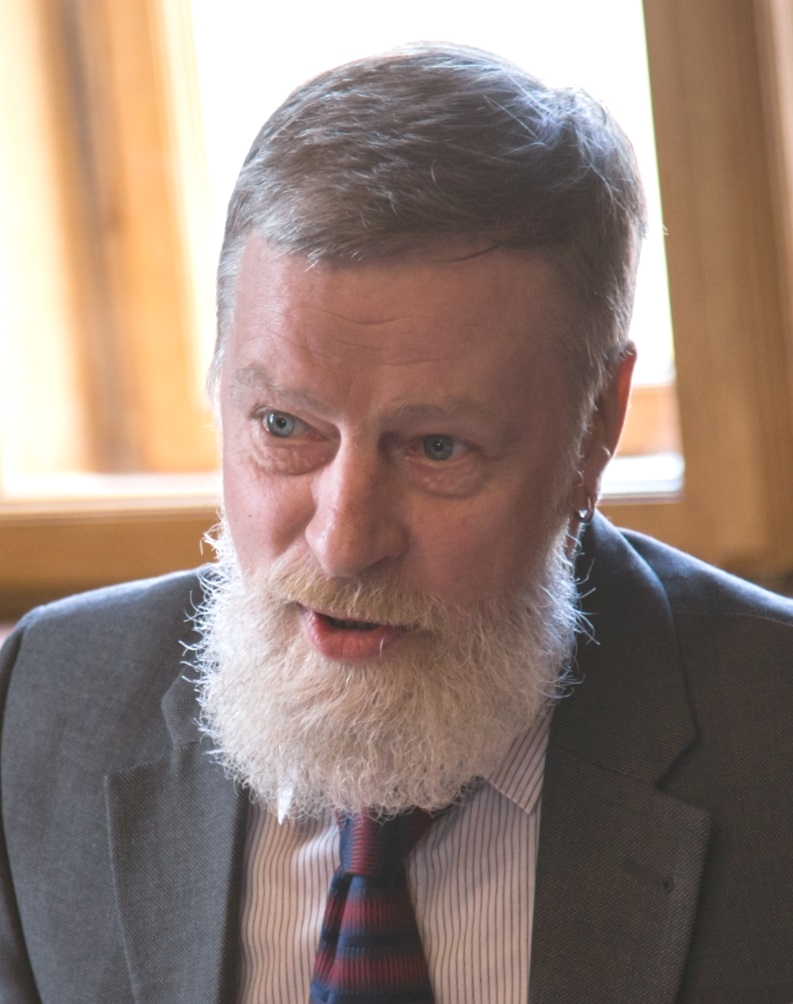 Assoc prof dr,
Assoc prof dr, 
